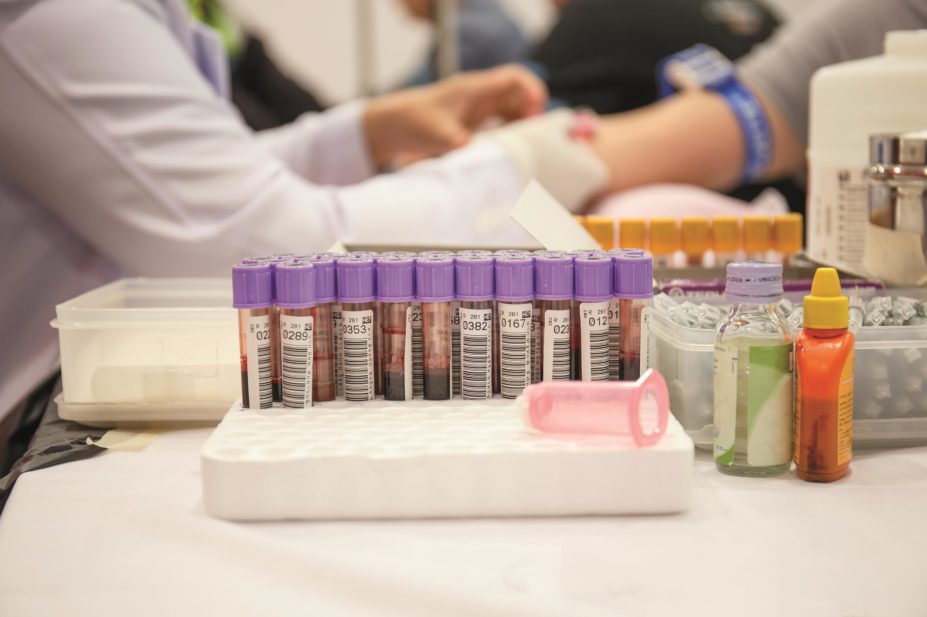
Shutterstock.com
A blood test could match patients to experimental drugs that target their specific tumour mutations, accelerating the development of new cancer treatments, according to a first-of-a-kind study.
In research performed jointly by the Institute of Cancer Research and the Royal Marsden Hospital in London, published in Clinical Cancer Research
[1]
, circulating cell-free DNA (cfDNA) from tumours in the bloodstream was analysed monthly to track treatment effectiveness.
“A dramatic decrease in cfDNA seems to correlate with a better prognosis — it might show the treatment is working,” says study lead Johann de Bono, head of the division of clinical studies at the Institute of Cancer Research.
Traditionally, tumour biopsies are used to identify genetic mutations that can be targeted with drugs. However, this technique is invasive and provides only a snapshot of a tumour prior to treatment. Recently, researchers have begun to investigate how less-invasive blood samples could be used. As DNA sequencing techniques have become more sensitive, this option has become more viable.
In the study, 39 patients with advanced cancer were recruited to a trial at the Royal Marsden, a leading cancer centre in the UK. Patients had all failed treatment with two previous drugs and were entering phase I clinical trials of experimental therapeutics aimed at their specific tumour mutations. The mutations in the patients’ tumours were identified using solid biopsies before treatment.
At one month intervals, blood samples were collected from patients to monitor the circulating tumour DNA. For 23 out of 39 patients, the tumour mutations identified in the tissue biopsy could be matched to the tumour DNA circulating in the blood. Of those 23 patients, nine had at least a 30% decrease in the frequency of circulating tumour DNA mutations during the course of treatment. This group had an average 111 days until disease progression, compared with 55 days for the remaining 14 patients whose circulating tumour DNA mutations did not decrease by this amount (P=0.0165).
Within each tumour there are cells with different types of mutations, explains de Bono. These mutations can be picked up in the cfDNA from blood samples. Many drugs developed to treat cancer are now designed to target specific mutations in the tumours. By monitoring the levels of cfDNA, researchers can see if a drug is working, he says, adding that monitoring treatment response through cfDNA is part of a drive towards the “rational design of clinical trials”.
Such “real-time” monitoring may also enable doctors to identify emerging tumour mutations that can be targeted with another drug. During the study, the researchers picked up a previously unidentified tumour mutation in one patient that was then targeted with an additional drug.
Steven Brown, honorary secretary of the Association of Coloproctology of Great Britain & Ireland, describes the test as a “potentially exciting development”.
“The use of simple blood samples to effectively monitor cancer treatment and allow precise tailoring of therapy to individual responses are two of the holy grails of cancer research,” he says.
De Bono says that for some of the most common tumours — for example breast, lung and bowel — cancer cells commonly circulate in the bloodstream, making cfDNA analysis possible. For other cancers, such as ovarian and brain, this is not usually the case, so researchers are now developing “super-sensitive” DNA sequencing techniques that could be used for these cancers.
References
[1] Frenel JS, Carreira S, Goodall J et al. Serial next generation sequencing of circulating cell free DNA evaluating tumour clone response to molecularly targeted drug administration. Clinical Cancer Research 2015. doi:10.1158/1078-0432.CCR-15-0584

